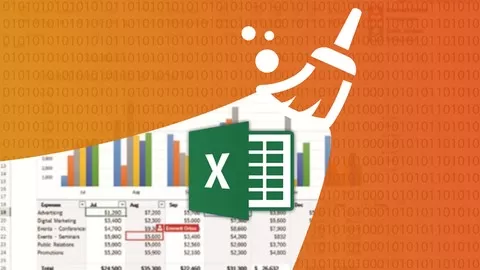Reasons why you should create a financial model for your startup or small business. A good financial model can help you:
•Test your assumptions and verify key drivers of your business
•Compare and contrast different business choices, like pricing models
•Calculate the ACTUAL amount of capital you need to startup
•Calculate your burn rate
•Model out your user growth
•Model out your expenses
•Be more prepared talking to potential investors
•And loads more.
Building a financial model isn’t just a vanity exercise. When done right, it could help you better understand your business, whether it’s a startup or an existing business you’re growing.
But it’s not easy and there is a right way and a wrong way to go about it.
Even if you have little to no finance background, if you’re going to be starting or running a business, this is a skill you need to have.
A good financial model is an indicator of how deeply you understand your business model and market. But building a good one requires the right tools and the right approach.
We’re going to show you how to do that with a wide variety of examples and exercises. But we’ll also be teaching general best practices that will help you, no matter what you’ll be building your financial models for in the future.
Why learn from us?
By signing up with us, you will be learning from two highly rated instructors that have a combined student count of over 750,000 students and 100,000 reviews!
Check out our profiles and see that we take care of your students and deliver the goods.
Evan has extensive startup experience and previously worked as a venture capitalist, where he evaluated 100’s of startups that trying to convince him to invest in them.
Symon also has startup experience in both tech and brick & mortar businesses. Previously he built tons of models while working in mergers and acquisitions as well as in private equity. And he’s helped dozens of startups build financial models across a dozen different business models and industries.
Together, we pull directly from our experience and put it in this course–in fact, two of the case studies use the ACTUAL financial models used to raise funding. The other case studies are inspired by well known startups you’re sure to recognize.
How is this different from Symon’s Intro to Financial Modeling Course?
The Intro to Financial Modeling course taught by Symon He and Brandon Young is an introductory course on financial modeling that presents a general overview covering the topic and is more relevant to those who wish to explore finance as a career option or those who want to understand financial modeling in a corporate context.
This course is all about financial modeling for startup businesses so it’s more geared towards entrepreneurs or business owners who want to better understand the key drivers of a new business.
There is almost zero overlap. Even though both courses introduce a lemonade stand as an example, those examples and models are quite different as they serve very different purposes.
What if I don’t have any finance or Excel background?
No worries! This course isn’t an Excel or Finance course, although you will learn a bit of both. We focus more on the rationale and the logic of modeling specifically for startups or growing businesses, so you can take what you learn to other spreadsheet tools.
But it will take practice. You won’t get better just watching the videos. That’s why have lots of practice exercises and sample models for you to learn from.
What will I be able to do after I take your course?
After taking our course, you will be:
•Able to confidently build financial models for your startup or new business from scratch
•Able to apply the best financial modeling practices and techniques
•Able to read and understand other financial models by looking at lots of practice models and case studies
•Able to leverage financial modeling to help you make smarter choices about your business.
•Able to learn a new skill set that you can take with you for any and every business venture you take up in the future.
Why lemonade stand example?
Because learning how to model on its own is tough enough but learning it while also having to learn a new business model makes it even harder.
But, even with a simple business model such as a lemonade stand, you’ll be surprised by how complex and sophisticated the analysis could become.
And since this is all about modeling for startups and new businesses, this example is different from the one in the Intro to Financial Modeling course.
After the simple lemonade example, we cover 7 distinct case studies involving different business models in different industries.
Tell me again why I should take your course?
You have absolutely ZERO risk.
Udemy gives you a solid as an oak tree 30-day money back guarantee.
So if you’ve read this far, we welcome you to join us inside.












